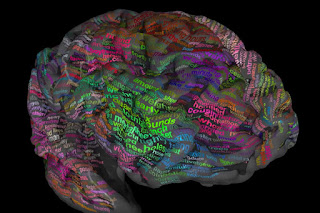Your Brain Predicts the Future
Brain Uses Two Clocks to Anticipate
Innovative Research - University of California - Berkeley
It's called anticipatory timing by the brain. And it's a 2 barreled system. One type of timing relies on memories from past experience. A second type is based on rhythm. They work together. An example is putting your foot on the car's gas pedal as the light starts turning from red to green. Berkeley neuroscientists have discovered that in music, sports, speech and other activities we calculate movements in two parts of the brain.
Brain Timekeepers
The neural networks supporting these timekeepers are split between 2 different parts of the brain. The scientists discovered that timing isn't a unified process. Their research has documented that there are 2 different ways we make temporal decisions and they are dependent on different parts of the brain.
Your Brain Actively Anticipating the Future
Berkeley scientists have provided a new perspective through their innovative research on how we calculate when to make a move. According to lead author/UC Berkeley neuroscientist Richard Ivry, together these brain systems allow us not just to exist in the moment but also actively anticipate the future.
Relevancy to Brain Disorders
This breakthrough research was published in the Proceedings of the National Academy of Science Journal. It holds particular relevancy to helping those with Parkinson's disease and cerebellam disorders at the outset of this great research.
 |
| Source: University of California |
Innovative Research - University of California - Berkeley
It's called anticipatory timing by the brain. And it's a 2 barreled system. One type of timing relies on memories from past experience. A second type is based on rhythm. They work together. An example is putting your foot on the car's gas pedal as the light starts turning from red to green. Berkeley neuroscientists have discovered that in music, sports, speech and other activities we calculate movements in two parts of the brain.
Brain Timekeepers
The neural networks supporting these timekeepers are split between 2 different parts of the brain. The scientists discovered that timing isn't a unified process. Their research has documented that there are 2 different ways we make temporal decisions and they are dependent on different parts of the brain.
Your Brain Actively Anticipating the Future
Berkeley scientists have provided a new perspective through their innovative research on how we calculate when to make a move. According to lead author/UC Berkeley neuroscientist Richard Ivry, together these brain systems allow us not just to exist in the moment but also actively anticipate the future.
Relevancy to Brain Disorders
This breakthrough research was published in the Proceedings of the National Academy of Science Journal. It holds particular relevancy to helping those with Parkinson's disease and cerebellam disorders at the outset of this great research.
%20(1)%20(1)%20(3)%20(2)%20(2).jpg)


Comments
Post a Comment